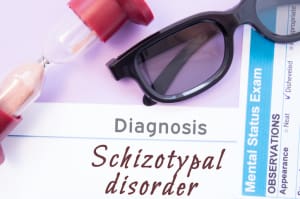
The Odd and Eccentric Personality Disorders: Schizotypal, Paranoid, Schizoid
$32.00
This course is no longer available
Odd and eccentric personality disorders, categorized under Cluster A in the DSM-5, include Paranoid, Schizoid, and Schizotypal Personality Disorders. These disorders are marked by unusual and peculiar behaviors or thoughts, often leading to significant challenges in social interactions and relationships. Individuals with these disorders display behaviors that share similarities with but are not as severe as, those observed in schizophrenia. These behaviors may include extreme suspiciousness, social withdrawal, and idiosyncratic patterns of thinking and perceiving the world. In this training, we will discuss the basics, challenges, and treatment of each of the three diagnoses.
Upon completion of this training, participants will be able to:
- Define & Discuss an Overview of Personality Disorder Characteristics & The Cluster A Personality Disorders
- Analyze & Conceptualize Paranoid Disorders: symptoms, characteristics, biopsychosocial causes & risk factors
- Analyze & Conceptualize Schizoid and Schizotypal personality disorder: symptoms, characteristics, biopsychosocial causes & risk factors
- Apply learning to current clinical practice
Social workers completing this course receive 2 Clinical asynchronous continuing education credits.
For other board approvals, this course qualifies for 2 hours of Clinical, Evidence Based Practices, and General Skill Building continuing education training.
Course Instructor: Stacy Blankenship, LCSW
Recording Date: 8/22/2024
Course Format: Recorded Live Webinar with downloadable presentation slides and/or handouts, evaluation, and a required quiz. The learner is required to pass with a 70% or higher to achieve the CE certificate of completion. The learner is able to reset the test until a satisfactory score is achieved.
CE Training Workshops, LLC, provider #1770, is approved as an ACE provider to offer social work continuing education by the Association of Social Work Boards (ASWB) Approved Continuing Education (ACE) program. Regulatory boards are the final authority on courses accepted for continuing education credit. ACE provider approval period: (will fill in the dates once this has been approved).
CE Training Workshops, LLC has been approved by NBCC as an Approved Continuing Education Provider, ACEP No. 7091. Programs that do not qualify for NBCC credit are clearly identified. CEUs On-Demand, LLC is solely responsible for all aspects of the programs.
System Requirements: Firefox, Chrome, Brave, Safari, Edge on any modern operating system (Windows, MacOS, Linux, Android, iOS). A desktop browser is recommended. We do not provide support resources for issues encountered using a mobile device.
For more information about our policies and board approval statements, please visit our FAQS page.
Stacy Blankenship, LCSW is a Licensed Clinical Social Worker and an intensively trained in Dialectical Behavioral Therapist completing her training at The Linehan Institute in 2015.
The Odd and Eccentric Personality Disorders: Schizotypal, Paranoid, Schizoid (2HR) Syllabus
I. Overview of Personality and Disorders
- Personality defined as enduring behavior and emotional patterns
- Personality disorders are rigid, maladaptive patterns that impair functioning
- Cluster A disorders marked by odd, eccentric behavior and cognitive distortions
- Common features include social detachment, paranoia, and emotional restriction
II. Risk and Contributing Factors
- Genetic predisposition and neurobiological differences (e.g., limbic and prefrontal cortex)
- Childhood trauma, neglect, and harsh parenting increase risk
- Cognitive distortions and personality traits such as neuroticism and low agreeableness
- Social and environmental stressors shape development of symptoms
III. Cluster A Overview
- Includes Paranoid, Schizoid, and Schizotypal Personality Disorders
- Common traits: social withdrawal, distorted thinking, interpersonal awkwardness
- Core features: distorted cognition, problematic emotional responses, impaired impulse control
IV. Paranoid Personality Disorder (PPD)
- Characterized by pervasive distrust and suspicion of others
- Reads hidden meaning into benign comments; holds long-term grudges
- DSM-5: requires 4 out of 7 symptoms including unjustified doubts and jealousy
- Difficult to treat due to mistrust; may present with brief psychosis
V. PPD Treatment and Prognosis
- Chronic and cyclical with resistance to therapy
- CBT adapted to reduce mistrust and improve relational thinking
- Emerging treatments: neurostimulation, integrated care models
- Prognosis improves with early intervention and support networks
VI. Schizoid Personality Disorder (SPD)
- Marked by detachment from social relationships and limited emotional expression
- Prefers solitary activities, appears aloof, indifferent to praise or criticism
- Misconceptions: SPD is not schizophrenia or antisocial PD
- Emotional range is intact but poorly expressed
VII. SPD Treatment and Prognosis
- Often undiagnosed or untreated due to lack of distress or help-seeking
- Psychotherapy (CBT, schema therapy) focuses on social engagement
- Group therapy and social skills training can enhance social functioning
- Mindfulness and digital interventions emerging as supports
VIII. Schizotypal Personality Disorder (STPD)
- Combines interpersonal deficits with cognitive/perceptual distortions
- Magical thinking, odd speech, unusual beliefs, transient paranoia
- Closely linked to schizophrenia spectrum; often misunderstood
- Impairment in social and occupational functioning is common
IX. STPD Treatment and Long-Term Outlook
- CBT and social skills training to address magical thinking and social anxiety
- Pharmacotherapy used off-label for comorbid symptoms
- Neurocognitive remediation and personalized therapy emerging
- Chronic but manageable with early support and structure
X. Differential Diagnosis and Clinical Considerations
- Key distinctions between Cluster A disorders and schizophrenia
- Avoid pathologizing cultural or spiritual beliefs (e.g., religious practices)
- Importance of ongoing assessment and individualized treatment plans
- Clinician awareness of stigma, safety, and long-term therapeutic alliance


